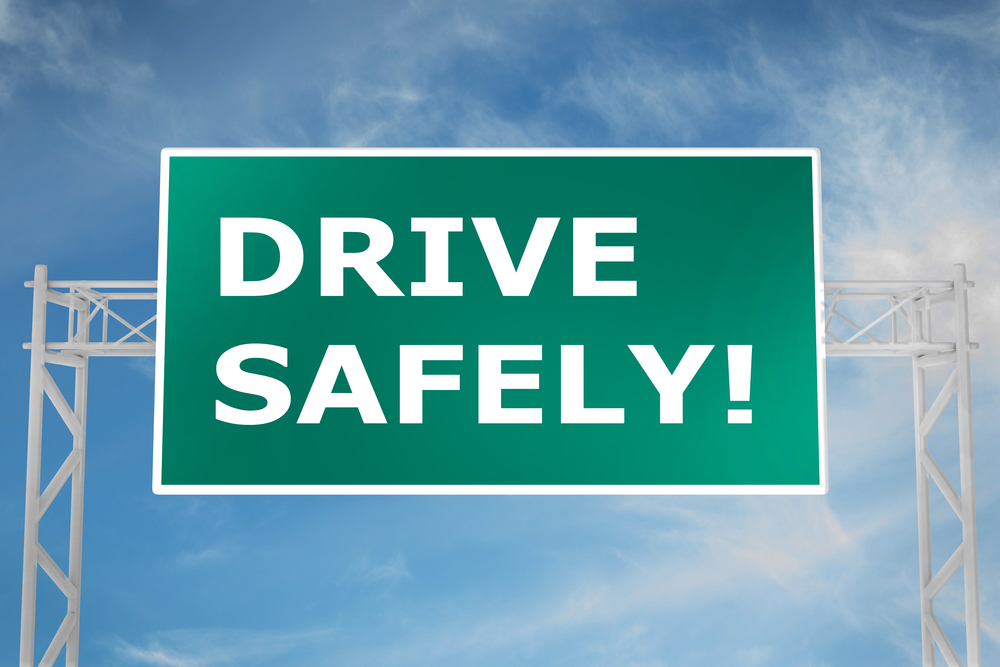Introduction
In the complex world of trucking and logistics, one of the most significant challenges that shippers face is securing reliable and safe carriers. The logistics industry is fraught with variability in carrier quality, which can directly impact the safety and efficiency of cargo transportation. This issue is not only crucial for maintaining the integrity of goods but also for ensuring the safety of drivers and the public on the roads. Recognizing the need for trustworthy partnerships, many turn to experienced brokers who specialize in vetting carriers and upholding stringent safety standards.
Safety on the road is paramount, and employing measures such as the Smith System—a renowned driver safety training method—can greatly reduce the likelihood of fatal crashes. This system teaches drivers to be more aware of their surroundings, anticipate potential risks, and make safer decisions while driving. In this blog, we will explore how brokers facilitate connections with carriers that prioritize such safety protocols, delve into the technologies and strategies that improve transportation safety, and discuss the critical role of continuous safety education in the trucking industry.

The Role of Brokers in the Trucking Industry
Brokers play an indispensable role in the trucking industry, acting as the vital intermediary between shippers who need to transport goods and carriers who provide transportation services. Their primary function is to facilitate the movement of goods across various distances by matching shippers with carriers that best fit their shipping needs and budget constraints.
This not only streamlines the process of finding transportation solutions but also adds a layer of efficiency and reliability that is crucial for the smooth operation of the supply chain. By understanding and managing the complexities of logistics, brokers ensure that goods are delivered in a timely and cost-effective manner, thereby supporting the backbone of global commerce.
The process of vetting carriers is a critical responsibility for brokers, involving thorough checks to ensure that each carrier adheres to stringent safety and reliability standards. Brokers assess carriers’ compliance with industry regulations, their safety records, and their operational histories. This vetting process includes verifying licenses, insurance policies, and safety protocols, ensuring that carriers meet or exceed federal and industry standards. By diligently selecting carriers who prioritize safety and reliability, brokers uphold the integrity of the transportation chain, protect their clients’ interests, and contribute to a safer, more reliable trucking industry.

Safety Tools for Carriers
The Smith System stands as a cornerstone in driver safety training within the transportation industry, offering a comprehensive approach to enhancing driver awareness and reducing accidents on the road. Developed by Harold Smith in 1952, this system emphasizes five key principles: aim high in steering, get the big picture, keep your eyes moving, leave yourself an out, and make sure they see you.
By instilling these principles in drivers, the Smith System promotes proactive decision-making, situational awareness, and effective hazard recognition while behind the wheel. Through classroom instruction, practical demonstrations, and ongoing reinforcement, drivers are equipped with the tools necessary to navigate challenging road conditions and anticipate potential dangers, thereby minimizing the risk of accidents.
In the context of commercial motor vehicles, the Smith System plays a crucial role in mitigating the dangers associated with distracted driving—a prevalent issue that poses significant risks to both drivers and the public. By promoting techniques such as maintaining a safe following distance, scanning mirrors regularly, and avoiding unnecessary distractions, the Smith System helps commercial drivers stay focused and alert throughout their journeys.
Additionally, the emphasis on proactive positioning and maintaining visibility ensures that drivers can react quickly to changing traffic conditions and potential hazards, reducing the likelihood of accidents and enhancing overall road safety. As carriers implement the Smith System within their driver training programs, they reinforce a culture of safety and responsibility, ultimately safeguarding their drivers and the communities they serve.

Challenges Faced by Truck Drivers and Commercial Motor Vehicles
Truck drivers and commercial motor vehicles encounter a variety of challenges on the road, ranging from the commonplace to the potentially life-threatening. Among these challenges are distracted drivers, whose inattention to the road poses a constant hazard. Additionally, encounters with angry drivers can escalate tensions, leading to unsafe conditions for all involved. Moreover, navigating emergencies, such as sudden weather changes or vehicle malfunctions, demands quick thinking and skillful maneuvering to avoid accidents.
The statistics surrounding accidents involving large trucks and commercial vehicles underscore the gravity of the risks faced by drivers in these industries. With a significant portion of traffic accidents involving such vehicles, it’s evident that more attention must be directed toward understanding and mitigating these risks.
Whether it’s collisions caused by distracted driving or other factors, these incidents often result in severe consequences, emphasizing the urgent need for proactive measures to enhance safety on the roads. Proper training programs and the implementation of systems like the Smith System offer promising avenues for addressing these challenges and reducing the incidence of accidents involving commercial vehicles.

The Importance of Choosing Reliable Carriers
Selecting reliable carriers is paramount in ensuring the smooth and safe transportation of goods across various distances. A reliable carrier is characterized by several key factors, including:
- A strong track record of safety
- Compliance with industry regulations and laws
- Rigorous driver training programs
- A commitment to maintaining high standards of professionalism and reliability
These carriers prioritize safety at every stage of the transportation process, from vehicle maintenance to driver behavior, thereby minimizing the risk of accidents and disruptions to the supply chain. By choosing reliable carriers, shippers can mitigate potential risks and safeguard their cargo against delays, damages, and other logistical challenges.
The benefits of utilizing well-trained drivers extend far beyond the confines of the transportation industry, with far-reaching implications for road safety and public welfare. Well-trained drivers are better equipped to navigate the complexities of the road, anticipate potential hazards, stay aware of other drivers, and make informed decisions that prioritize safety and efficiency. This translates into fewer crashes, reduced traffic congestion, and better protection for other motorists, pedestrians, and road users.
By partnering with carriers that prioritize safety and professionalism, shippers not only safeguard their cargo but also contribute to the overall improvement of road safety standards. In essence, the importance of choosing reliable carriers cannot be overstated, as it serves as a cornerstone in promoting the integrity, efficiency, and safety of the transportation industry as a whole.

Broker Strategies for Choosing Safe Carriers
Identifying safe carriers is a major concern for brokers operating in the logistics industry. One key strategy in this pursuit is thorough vetting. Brokers meticulously examine carriers’ safety records, ensuring compliance with regulatory standards and a history of safe operations. This involves factors such as accident reports, maintenance records, and driver qualifications. Access to databases like the FMCSA’s Safety Measurement System (SMS) can provide valuable insights into carriers’ safety performance, including any truck driver violations or incidents on their record.
Brokers can also enhance their assessment of carrier safety by leveraging industry certifications and affiliations. If a carrier is Smith System Certified this is a great indicator to the broker that the carrier prioritizes safety. This training helps drivers to practice safe driving habits. Brokers also reference carrier review boards where other brokers and shippers share their experience with the carrier. These reviews are a great method to verify that the carrier is reliable and safe.
Lastly, brokers can cultivate trust and transparency in their partnerships with carriers through open communication channels. Building strong relationships allows brokers to gain deeper insights into carriers’ safety practices and foster a culture of accountability. By maintaining ongoing dialogue and sharing relevant safety information, brokers and carriers can work collaboratively to address any concerns and proactively mitigate risks. This collaborative approach not only promotes safer operations but also strengthens the overall integrity of the logistics network, benefiting all involved.

Conclusion
As we draw to a close, it’s imperative to reiterate the paramount importance of safety within the trucking industry and the indispensable role that brokers play in upholding these standards. Safety isn’t merely a checkbox on a list of requirements; it’s the foundation upon which the entire industry stands, influencing every aspect of operations and impacting countless lives on the road. Brokers serve as guardians of this foundation, meticulously vetting carriers and advocating for best practices to ensure that safety remains the top priority.
Trucking companies are encouraged to recognize the immense value in partnering with brokers who prioritize safety above all else. Investing in such brokers not only safeguards their reputation but also ensures the well-being of their drivers, cargo, and the general public. By aligning with brokers who uphold rigorous safety standards and provide access to high-quality carriers, trucking companies can navigate the complex logistics landscape with confidence and peace of mind.




